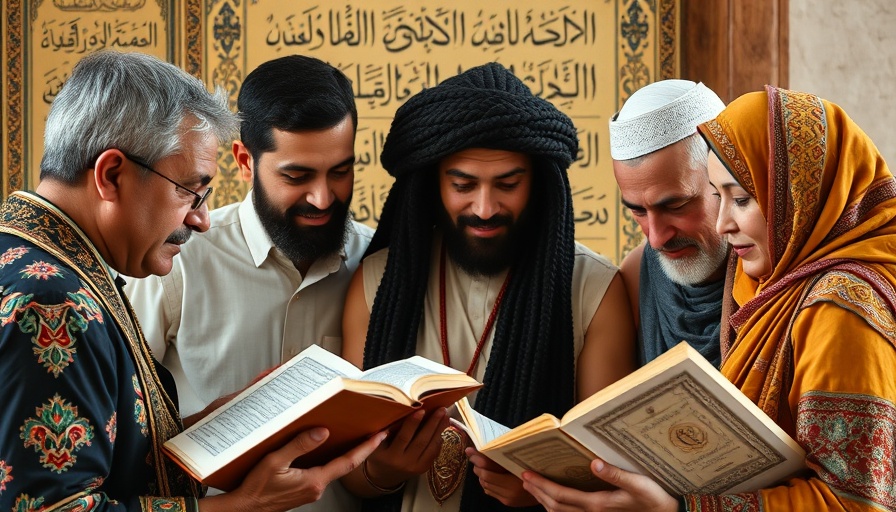
Building Bridges: Engaging Conversations with Our Muslim Friends
Understanding religious differences can often be a complex journey, especially when it comes to the profound figures of Jesus and the teachings in the Qur’an. For believers, skeptics, and seekers alike, having thoughtful, respectful dialogue around these themes can lead to mutual respect and deeper understanding.
The Significance of Jesus in Islam
In Islam, Jesus (known as 'Isa') is revered not only as a prophet but also as the Messiah. This Christ figure is recognized for his miraculous birth by Mary (Maryam), his esteemed teachings, and divine miracles. He is considered "a word from Allah" and a spirit created without a father, as stated in the Qur’an (3:45-47). This acknowledgment creates a significant point of dialogue between Christians and Muslims, forming a foundation for friendships based on mutual respect for each other's faiths.
Common Grounds for Dialogue
Dialogue with our Muslim friends can begin by exploring shared values. Themes of compassion, justice, and love for one's neighbor are interwoven throughout both Christianity and Islam. The shared teachings of loving God and one’s neighbor present a powerful common ground that can spark meaningful conversations. Indeed, Islamic texts echo the same sentiments found in Christian teachings regarding love and mercy.
Questions That Ignite Discussion
Engaging with our Muslim friends can be enriched by asking specific questions that show curiosity and respect. Here are seven thoughtful prompts:
- What qualities of Jesus do you admire most in your teachings?
- How does the Qur’an shape your understanding of justice and compassion?
- In what ways do you see similarities between Jesus' life and the lives of modern faith leaders?
- What role does Mary play in your understanding of Jesus and faith?
- How do your traditions view the concepts of salvation and mercy?
- What are your thoughts on the significance of interfaith dialogue?
- How can we work together to tackle modern issues in our communities?
By focusing on these questions, not only do we express genuine interest in our Muslim friends’ beliefs, but we also create an opportunity for deeper conversations that can enrich both parties.
Benefits of Engaging with Other Faiths
Interfaith dialogue can cultivate understanding, reduce fear, and enhance collaboration among diverse communities. Recognizing our shared humanity and respect for differing beliefs helps to foster peaceful coexistence. Moreover, it encourages the development of moral values that can contribute positively to our local and global communities.
Conclusion: Moving Forward Together
Engaging thoughtfully with our Muslim friends around the teachings of Jesus and the Qur’an can bridge cultural and theological divides. Whether you are a believer looking to strengthen your faith or a skeptic seeking truth, genuine dialogue is essential for enacting global peace. Let's continue these important conversations, affirming our shared values while respecting our differences. Together, we can change hearts and minds for the better.
 Add Row
Add Row  Add
Add 








Write A Comment